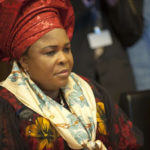

A media and civic technology nonprofit organization in Nigeria that advances fundamental human rights, good governance and accountability in West Africa through investigative journalism and open data is driving a revolution to combat the spread of fake news in the country’s criminal justice and anti-corruption sector.
In collaboration with the British Council Nigeria and the European Union, the Premium Times Centre for Investigative Journalism (PTCIJ), is building the capacity of journalists across mainstream and online newsrooms in Nigeria, equipping them with the skills and tools necessary to verify and eliminate misinformation, disinformation and distortions in their reportage.
Since it started in March 2019, the Fact-checking and Investigative Journalism project has trained some 100 journalists and editors across the states of Adamawa, Kano, Lagos, Anambra and the FCT, exposing them to the provisions and application of the Administration of Criminal Justice Act, especially as it relates to arrest, detention, pleabargain and conviction of criminal suspects.
“The criminal justice and anti corruption sector is an under-reported sector and we believe that one of the reasons that this is happening is because journalists do not have the required skills to uncover secrets in that sector, hence the training, PTCIJ Communication Officer and Editor of DUBAWA, the group’s fact-checking platform, Ebele Oputa, told this newspaper in an interview.
“The aim of this training is to create a culture of verification and investigative reporting amongst journalists, with the aim that the stories produced as a result of this training will spur government into action, thereby advancing good governance and democracy.”
According to Gbemiga Ogunleye, Provost of the Nigeria Institute of Journalism [NIJ] and a resource person at the training, “the spread of fake news is putting journalism on trial in Nigeria, and journalists are obliged to rise up and defend their profession.”
The training program is therefore expected to hone the skills of trainees in fact-checking and investigative journalism especially, thereby enhancing their capacity to produce in-depth and truthful stories that will advance democracy in Nigeria, Ebele Oputa said.
“We also hope that our trainees will train other colleagues and be pioneers of ethical journalism in Nigeria.”
The trainees also learnt the processes involved in budgeting, budget spending and tracking, using the Public Procurement Act and other instruments of law.
Post Views: 53
You may be interested

Arsenal Equal Chelsea’s London Derby Feat After 5-1 Win Vs Palace
Webby - December 21, 2024Arsenal equaled Chelsea’s London derby achievement following their 5-1 win against Crystal Palace in Saturday’s Premier League game at Selhurst…

Haaland Backs Guardiola To Turn Man City’s Poor Form Around
Webby - December 21, 2024Erling Haaland had said he and his Manchester City teammates are still backing manager Pep Guardiola to turn the team’s…

PSG To Reignite Interest In Osimhen
Webby - December 21, 2024Paris Saint-Germain have contacted Napoli to discuss signing Victor Osimhen in January, according to reports in France.It is reported that…

















![American Pastor, David Wilson Seen Eating The Box Of Woman Who Isn’t His Wife [Video]](https://onlinenigeria.com/wp-content/uploads/2019/10/american-pastor-david-wilson-seen-eating-the-box-of-woman-who-isnt-his-wife-video-150x150.jpg)






![26-Year-Old Secondary School Graduate, Emeka Nelson Builds Generator That Runs On Water [Video]](https://onlinenigeria.com/wp-content/uploads/2019/08/26-year-old-secondary-school-graduate-emeka-nelson-builds-generator-that-runs-on-water-video-150x150.jpg)

